India’s long drought in ICC tournaments finally ended on June 29 at Bridge town in Barbados. Led by Rohit Sharma, the Men in Blue won the ICC T20 World Cup 2024, their first since the 2013 Champions Trophy at Birmingham in the UK. The triumph marked a new chapter for Indian cricket, transcending the sport itself and symbolising the resilience, unity, and collective spirit of a nation.
The journey to the title was full of challenges. Last year in November, in the 2023 ODI World Cup, India was in stellar form but faltered at the final hurdle against Australia in Ahmedabad. However, this time the stars aligned with the Indian team in the West Indies where Rohit Sharma’s men clinched a seven-run victory over the South African team.
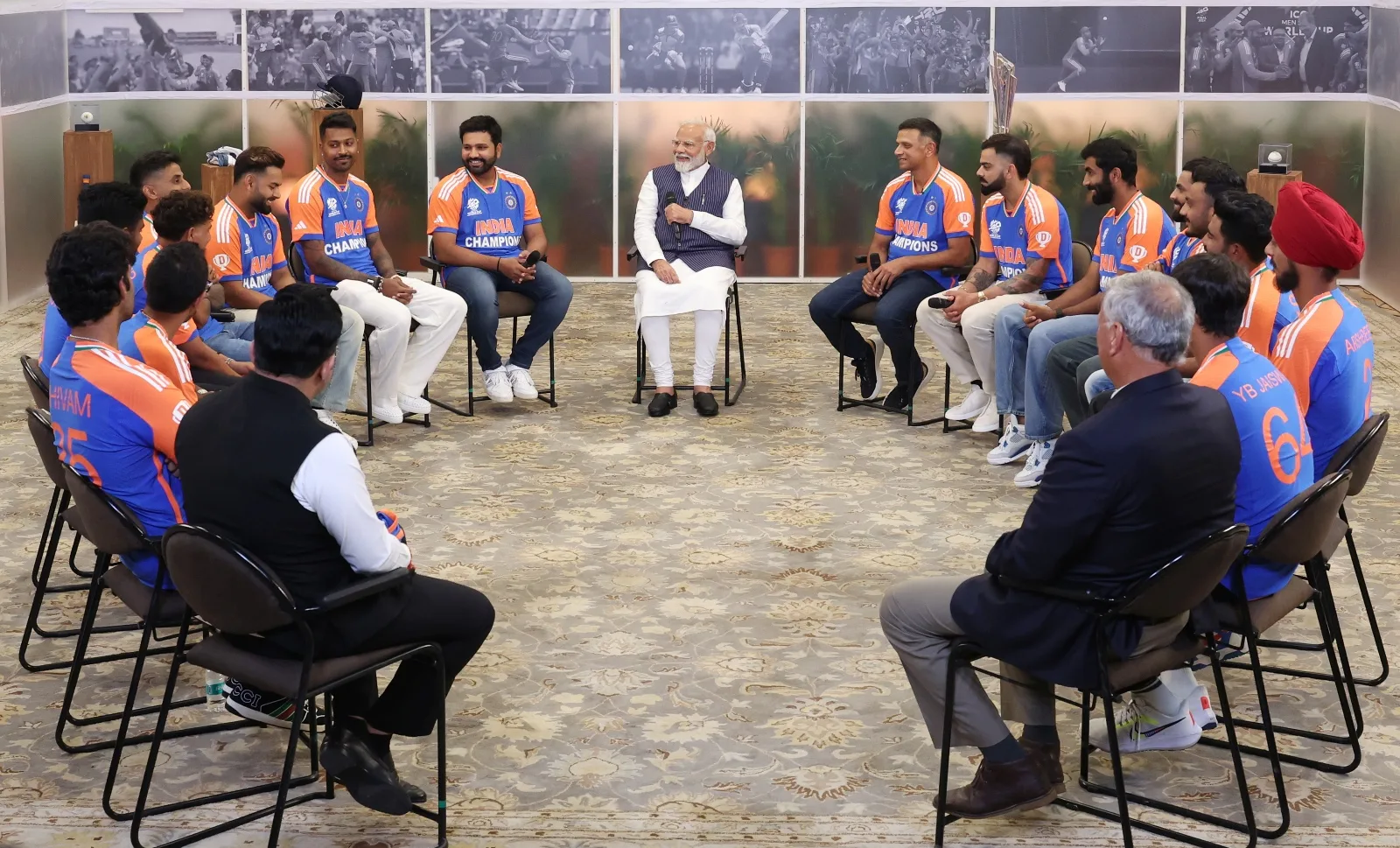
A Collective Effort
The journey to the top wasn’t solely about individual brilliance; it was a collective effort. Every match had its own hero stepping up to the occasion, demonstrating the strength of the team. This championship run showcased the depth and unity of the squad, with each member rising to the challenge and contributing when it mattered most. This team effort, where different heroes emerged in every match, epitomised the spirit of resilience and collaboration that ultimately led India to triumph. Jasprit Bumrah delivered match-winning performances against Pakistan and Ireland, showcasing his bowling prowess. Arshdeep Singh shined against the USA and South Africa with his remarkable bowling. Suryakumar Yadav’s exceptional batting turned the tide against Afghanistan. Hardik Pandya’s all-round brilliance was pivotal in the match against Bangladesh. In the semifinal, it was captain Rohit Sharma who led from the front. And in the final, when the team was under immense pressure, it was Virat Kohli who played a crucial innings, guiding India to victory. This series of individual contributions in different matches demonstrated the strength and resilience of the team, ultimately leading them to triumph.
The team’s secret lies in its unity. Before the World Cup began, there were questions about Hardik Pandya place in the team because of his performance. There were rumours of a rift between him and Rohit, especially after Hardik was given the captaincy of the Mumbai Indians, replacing Rohit. Fans were also upset with Hardik and would boo him. However, throughout the World Cup, no such issues were visible. Rohit and Hardik were very clear about their target of winning the World Cup. After winning the World Cup final, videos of them crying with joy together and photos of the two celebrating have captivated everyone. Fans are also saying that we won the World Cup because of their friendship.
The importance of unity in a team is evident from this that the Pakistan team, despite having T-20 expert players, was eliminated in the first round. The Pakistani media reported that there was a rift in the team, with Babar Azam and Shaheen Shah Afridi not getting along and having ego problems. The team appeared fragmented throughout the tournament, with reports that players were not happy with the management, which was completely different from the Indian team.
Rohit’s Brilliant Captaincy
Rohit Sharma, the captain, set the tone with consistent performances at the top of the order. His solid starts provided stability and allowed the middle order to flourish. Rohit’s tactical acumen was evident throughout. Whether it was field placements, bowling changes, or setting targets, he led with clarity and confidence. The 22- yard, drop-in pitches were not conducive to the massive sixes typically associated with T20Is, although still he managed to excel like no one else. Rohit’s emotions were evident when after winning the finals, he picked a speck of soil from the pitch and ate it.
Virat’s Excellent Batting
Kohli’s 76 runs in the final against South Africa was a masterclass. He absorbed pressure, anchored the innings, and guided India to a competitive total. Kohli’s work ethic and commitment inspired the team. His leadership within the batting unit was invaluable.
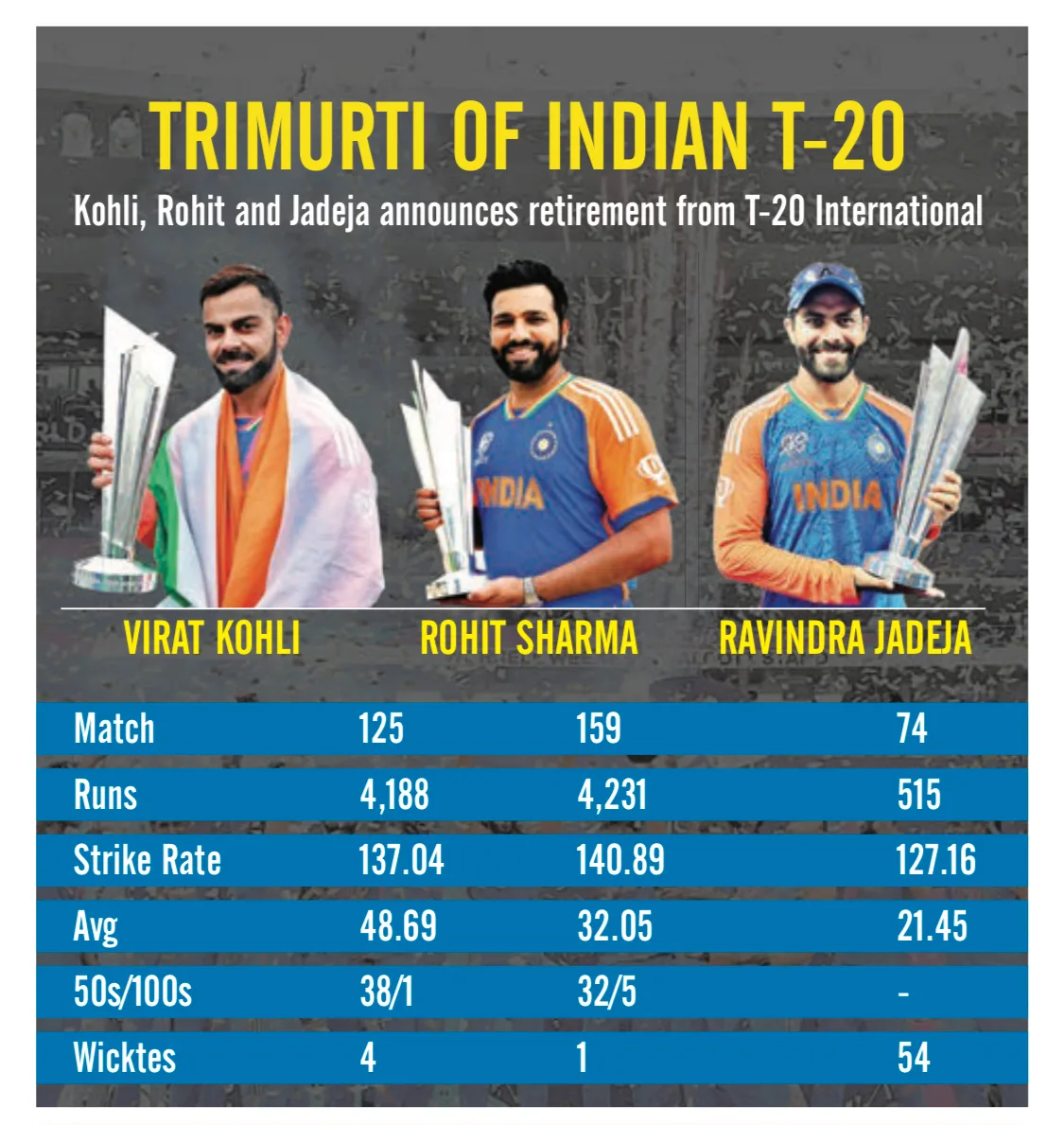
All-Round heroes Hardik Pandya and Axar Patel
Hardik Pandya’s explosive batting and crucial overs made him a game-changer. His all-round skills added depth to the team. In the semi-final and final, Axar Patel’s all-round brilliance—his wicket taking ability and crucial runs—Both Bumrah and Arshdeep have been sensational for India in the whole tournament, especially in the powerplay overs. Both produced match winning performances with an exceptional economy-rate. Bumrah has picked up 15 wickets with an economy rate of 4.18. Arshdeep, on the other hand, picked up 17 wickets and grab the first spot in the list of bowlers with most wickets .
A catch for the ages
Not to forget Suryakumar Yadav, his aggressive batting in the semifinal and his stunning catch of David Miller in the final were the turning point in the final. When South Africa seemed on the brink of victory, his catch turned the tide in India’s favour. His catch has been hailed as one of the greatest in cricket history, drawing comparisons to Kapil Dev’s legendary catch of Viv Richards that led India to World Cup victory in 1983.

Rahul Dravid’s Leadership United the Team
Rahul Dravid’s tenure as India’s head coach during the T20 World Cup showcased a dignified yet subtle approach. His calm presence resonated with the team, even under pressure. Behind the scenes, he worked diligently to create harmony and unity. Facing scrutiny and managing superstars, Dravid’s ability to maintain balance and prevent discord was remarkable. His patience influenced the team’s mindset. His legacy extends beyond the boundary, shaping the next generation of cricketers. The final against South Africa was not just a closely fought match but also a deeply emotional one for India. Many senior players, including Rohit Sharma, Virat Kohli and Ravindra Jadeja were near the end of their T-20 careers. India’s last T20 World Cup victory was in 2007, when Rohit was just beginning his international career. The World Cup’s top prize had so far eluded Kohli, one of cricket’s most recognised icons, and Rahul Dravid, India’s coach, who had never won a World Cup during his illustrious playing career.
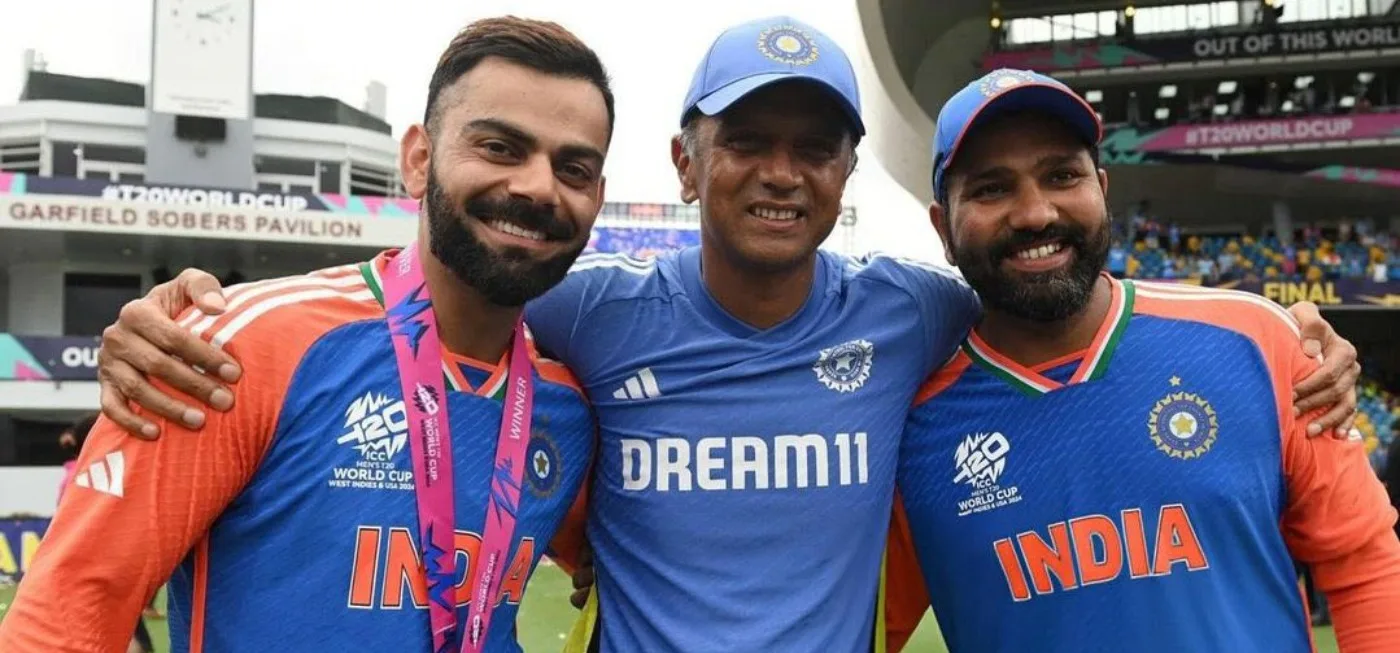
The 2024 T-20 World Cup will be remembered for the spirited performances by the ICC associate nations, for its incursion into uncharted American territory, for the fairytale runs of the USA and Afghanistan, and for the resurgence of cricket in the Caribbean islands. There were pitch controversies, nightmarish logistics, and standout performances from unheralded new talents. Yet, Rohit, Kohli, and their teammates remained in view at the final.


Inspiration for the young generation
Rohit Sharma, Virat Kohli’s and Ravindra Jadeja’s decision to retire from T20 internationals marks the end of an era. For younger cricketers, it’s an opportunity to step up, take resposnibility responsibility,and shape India’s future. Rohit,Kohli and Jadeja can now mentor younger generation of cricketers. Their experience, work ethic, and leadership will guide budding talents. The journey will not be easy, but with the foundations laid by the current team and the guidance of experienced mentors, the future of Indian cricket looks promising.
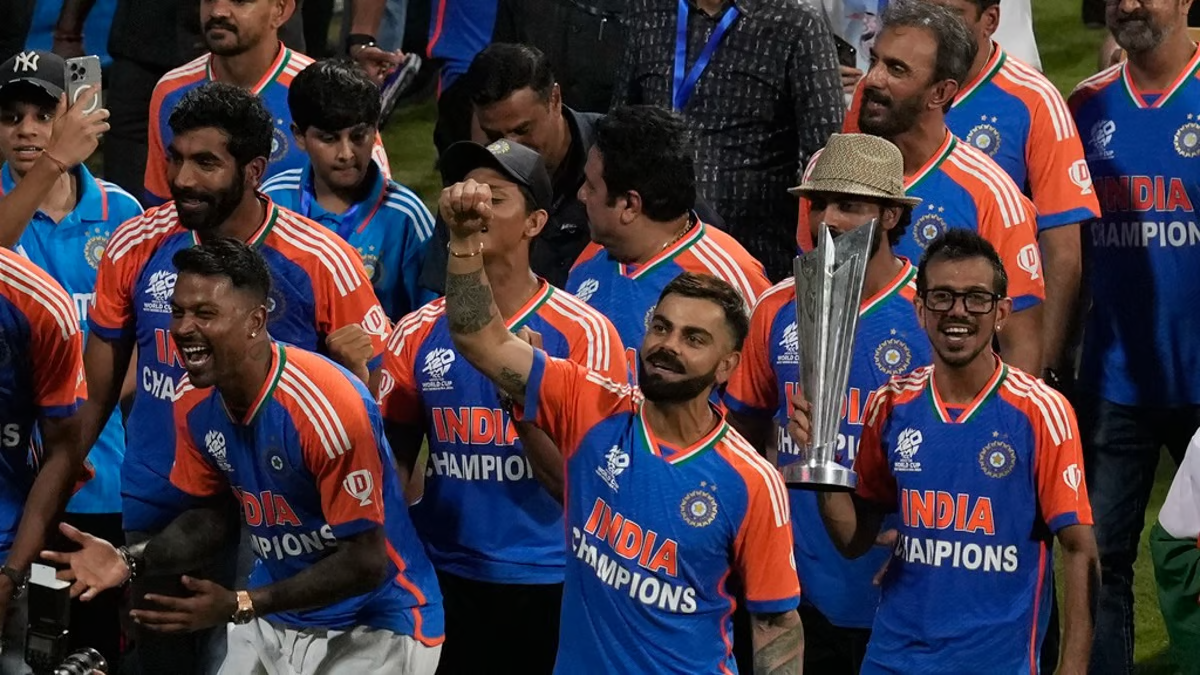
A Victory Beyond Cricket
This victory transcends cricket—it’s a testament to resilience, unity, and the pursuit of excellence. Let this win inspire us all—whether on the field or in our daily endeavours. In the end, the only memory that matters is that of a united Team India. This triumph is not just a sporting achievement; it’s a beacon of hope and inspiration for millions. It reminds us that with unity, determination, and collective effort, we can overcome any obstacle and achieve greatness. It is a narrative that goes beyond the boundaries of the cricket field. It is a story that will be told and retold, inspiring future generations to dream big, work hard, and stay united in the face of challenges.


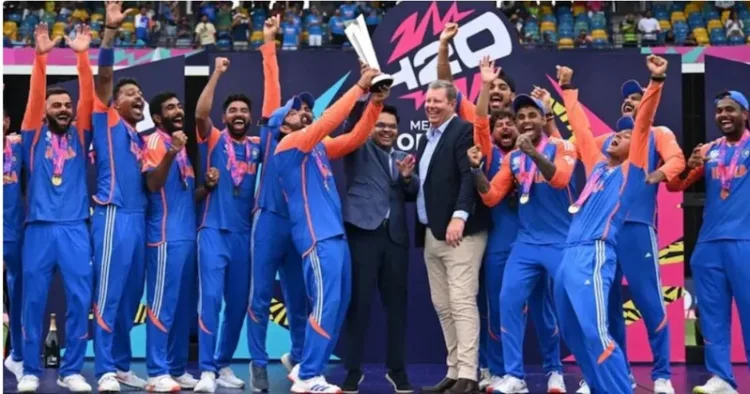

















Comments